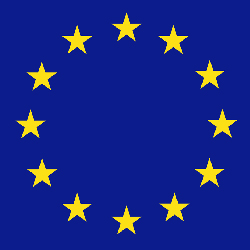FECIF fears MiFID disclosures
Chris Hamblin, Editor, London, 20 February 2015

A regional trade body is trying to use an old-fashioned avenue of persuasion to turn back the tide of EU 'inducement' disclosure policy.
The 'Fédération Européenne des Conseils et Intermédiaires Financiers' or FECIF, which claims to bestraddle 'Europe' but whose members are actually only from Switerland and the European Union, is trying to scotch the EU's second Markets in Financial Instruments Directive by dressing its constituents up as 'too big to fail' collectively. FECIF is based in Brussels.
FECIF firmly disagrees with the provisions in Article 24(9) of MiFID II on quality enhancement (QE). These measures, it believes, are most likely to have the undesired and unintended effect of reducing clients’ access to investment advice, discouraging what is generally known as ‘open architecture’, thus decreasing the choices available to consumers.
The EU's new regime for information about costs and charges includes rules that apply to all kinds of third party payment paid or received by the firm in question in connection with the service provided to the client. Article 24(9) of MiFID II refers to the conditions that third party payments must comply with and the requirement to disclose such payments. It states: “the existence, nature and amount of the payment or benefit [...] or, where the amount cannot be ascertained, the method of calculating that amount, must be clearly disclosed to the client, in a manner that is comprehensive, accurate and understandable, prior to the provision of the relevant investment or ancillary service”.
The worry is that small and medium sized advisory businesses, such as intermediary firms and the smaller boutique businesses that advise high-net-worth individuals, will be squeezed. FECIF is touting their virtues as important distributors for the products of banks, insurers and asset managers - and as sources of employment for several hundred thousand subjects of the EU - in its bid to influence policy. Rather naively, and at variance with the trends of the times in at least some of the EU's countries, it also believes that the hole left by the disappearence of such businesses will be filled by the social services and benefit systems of member-states.
Sadly for its members, FECIF does not seem to realise that the 'we are too big to fail' argument only influences government policy when it comes from one or more of the huge politically-connected corporations (many of them financial) that cluster around the world's central banks. FECIF represents about 230,000 financial intermediaries through 19 national trade bodies and 20 'pan-European commercial networks.' This is a large spread by any measurement, but the numbers are about to decrease.
It was last May that the European Securities and Markets Authority issued a discussion paper about a selected number of more innovative or technically complex topics "in order to receive first feedback from stakeholders for the preparation of ESMA technical standards." MiFID is to come into force all over the EU in January 2017.












